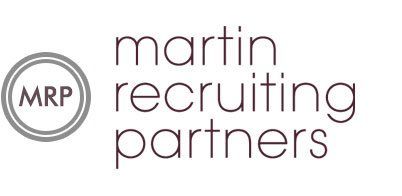Hiring in Haste: Why Rushing the Hiring Process Is Not Always Wise

When you're running a restaurant, time is a luxury you don’t always have. Shifts need to be covered, fires need to be put out (sometimes literally), and customers expect top-notch service, no matter what. It's tempting to hire the first manager who seems "good enough" just to fill that glaring vacancy. But here’s the thing—hiring in haste rarely ends well.
Rushing through the hiring process can lead to some big problems down the line. Think ignored red flags, mismatched skills, unhappy teams, and high turnover. Yikes, right? The good news is there’s a better way to approach hiring—and Martin Recruiting Partners (MRP) is here to help.
What's the Damage of Hiring Too Quickly?
We get it. When you're stretched too thin, it’s tough not to hit fast-forward on finding a new restaurant manager. But it's crucial to remember that hiring a manager is about more than just filling a position. You're hiring someone who's going to lead your team, shape your culture, and keep your restaurant running smoothly during the dinner rush.
Here are some common pitfalls of rushing the process and why they can hurt your business long-term:
- Ignoring Red Flags
Someone might look great on paper, but rushing means you might not dig deep enough during interviews to spot potential issues like bad communication or a lack of leadership skills. - Compromising on Qualifications
When time is tight, you might settle for someone who's “close enough” instead of holding out for the right person. This can result in performance issues down the line. - High Turnover Costs
If the new hire doesn't fit with your team or lacks crucial skills, chances are they won’t last long. And replacing employees isn’t just time-consuming—it’s expensive.
How Martin Recruiting Partners Can Help
That’s where we come in. At MRP, we take the stress out of hiring by doing all the heavy lifting for you. Whether you're pressed for time or just overwhelmed, we focus on finding the perfect fit for your unique needs. Here's how we make hiring faster and more effective—without sacrificing quality:
- We Pre-Screen Candidates
We vet and narrow down a pool of qualified candidates before you even meet them. That means no more sifting through piles of resumes or guessing who’s the best option. - We Match for Cultural Fit
A good resume is just the start. We ensure candidates align with your restaurant's values, team dynamic, and culture. - You Only Pay If You Hire
There’s no risk! You pay us only when you choose to hire a candidate we present to you.
By trusting MRP with your hiring needs, you can focus on running your restaurant with complete peace of mind, knowing we'll bring you highly vetted candidates who check all the boxes—quickly and efficiently.
Pro Tips for Better Hiring
Want to avoid the pitfalls of rushing? Here are some tips to keep your hiring process on track—and on time.
- Create a Hiring Timeline
Map out every step of the process, from creating the job description to holding interviews. Break it into realistic timeframes so you don’t feel pressured to skip steps. - Use Structured Interviews
Prepare specific questions to evaluate candidates on the skills and traits you need most. That way, you’re comparing apples to apples. - Don’t Skip Reference Checks
Yes, it adds time, but talking to previous employers can uncover insights you might not get from an interview. - Ask for Help
Seriously. If hiring feels like a second full-time job, it’s okay to call in the experts (hint, hint—MRP).
Test Your Knowledge!
To help you understand the risks of hiring too quickly, here’s a fun multiple-choice quiz. Check your answers as you go, and see how well you know the pitfalls of rushed hiring!
1. What risk arises if you don’t carefully screen candidates?
a. You'll find the perfect employee
b. Ignoring potential red flags
c. Increased staff satisfaction
d. Boost in employee morale
Answer: b. Ignoring potential red flags
Why it’s correct: Skipping careful screening can mean missing warning signs, such as a history of poor communication or lack of leadership skills—issues that can surface later and create bigger problems.
2. Compromising on qualifications might lead to...
a. Long-lasting hires
b. Undermining team confidence
c. Improved onboarding experiences
d. Better leadership outcomes
Answer: b. Undermining team confidence
Why it’s correct: When you hire someone underqualified, your existing team may feel frustrated or lose confidence in leadership because they have to make up for the gaps.
3. Why is rushing the hiring process a problem in team dynamics?
a. Builds trust between team members
b. Reduces communication issues
c. Creates friction due to poor cultural fit
d. Leads to fewer conflicts
Answer: c. Creates friction due to poor cultural fit
Why it’s correct: A manager who doesn’t match your restaurant's culture can create tension within the team, making daily interactions awkward and inefficient.
4. What's the most expensive outcome of a poor hire?
a. Poor financial planning
b. High employee turnover
c. Reduction in customer orders
d. Increased employee benefits
Answer: b. High employee turnover
Why it’s correct: Replacing an employee involves time, money, training, and lost productivity. High turnover adds up fast and disrupts operations.
5. How does MRP help save time in hiring?
a. By writing job descriptions
b. By pre-screening and vetting candidates
c. By introducing you to HR software
d. By running your restaurant
Answer: b. By pre-screening and vetting candidates
Why it’s correct: MRP filters out underqualified applicants and delivers a shortlist of top candidates, saving you from sorting through endless resumes.
6. What can happen if you ignore a candidate’s references?
a. Faster onboarding
b. Reduced employee turnover
c. Might miss red flags in work history
d. Ensures unbiased hiring decisions
Answer: c. Might miss red flags in work history
Why it’s correct: Speaking with past employers can reveal issues like poor reliability or conflicts that won’t show up on a resume.
7. Cultural fit impacts what aspect of the restaurant?
a. Food quality
b. Menu prices
c. Team cohesion and morale
d. Kitchen layout design
Answer: c. Team cohesion and morale
Why it’s correct: Managers set the tone for your team. If they clash with existing staff, it can lead to tension and hurt morale.
8. What’s a core focus of MRP’s recruitment process?
a. Writing payroll software
b. Matching cultural and leadership fit
c. Organizing events for hired employees
d. Reducing food costs
Answer: b. Matching cultural and leadership fit
Why it’s correct: MRP focuses on finding candidates whose values and leadership style align with your restaurant’s culture, setting your team up for success.
9. What costs more—a rushed hire or a longer hiring process?
a. Rushed hire
b. Longer hiring process
c. Both cost the same
d. Cost varies by industry
Answer: a. Rushed hire
Why it’s correct: The expenses of turnover, retraining, and lost productivity far outweigh the time you invest upfront in a careful hiring process.
10. How can MRP reduce hiring risks?
a. By automating all hiring tasks
b. By providing highly qualified, pre-screened candidates
c. By avoiding all hiring steps
d. By shifting operations management
Answer: b. By providing highly qualified, pre-screened candidates
Why it’s correct: When MRP narrows down candidates for you, the focus is on quality, which eliminates the biggest pitfalls of rushed hiring.
By reflecting on these answers, it’s easy to see how being thoughtful in your hiring process and relying on experts like MRP when things get overwhelming can set your team and your restaurant up for long-term success. Want to learn more?
Give us a call; we’ve got your back!


